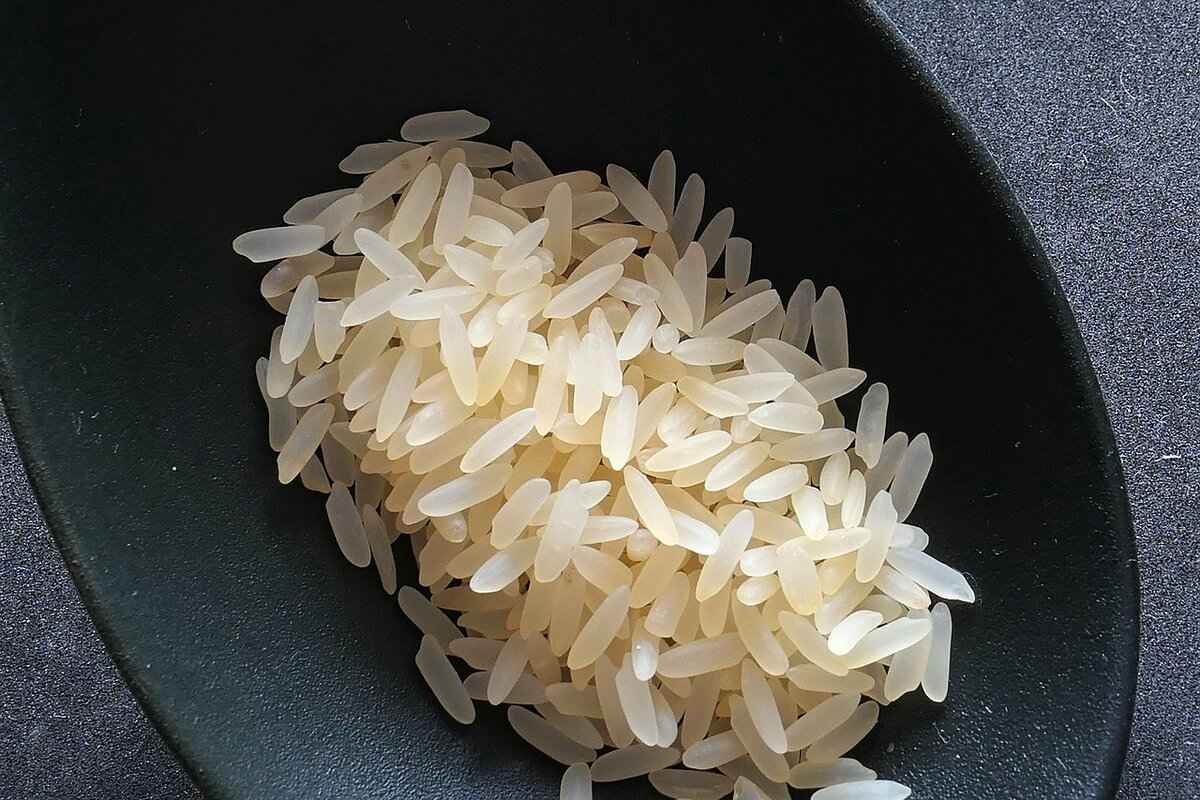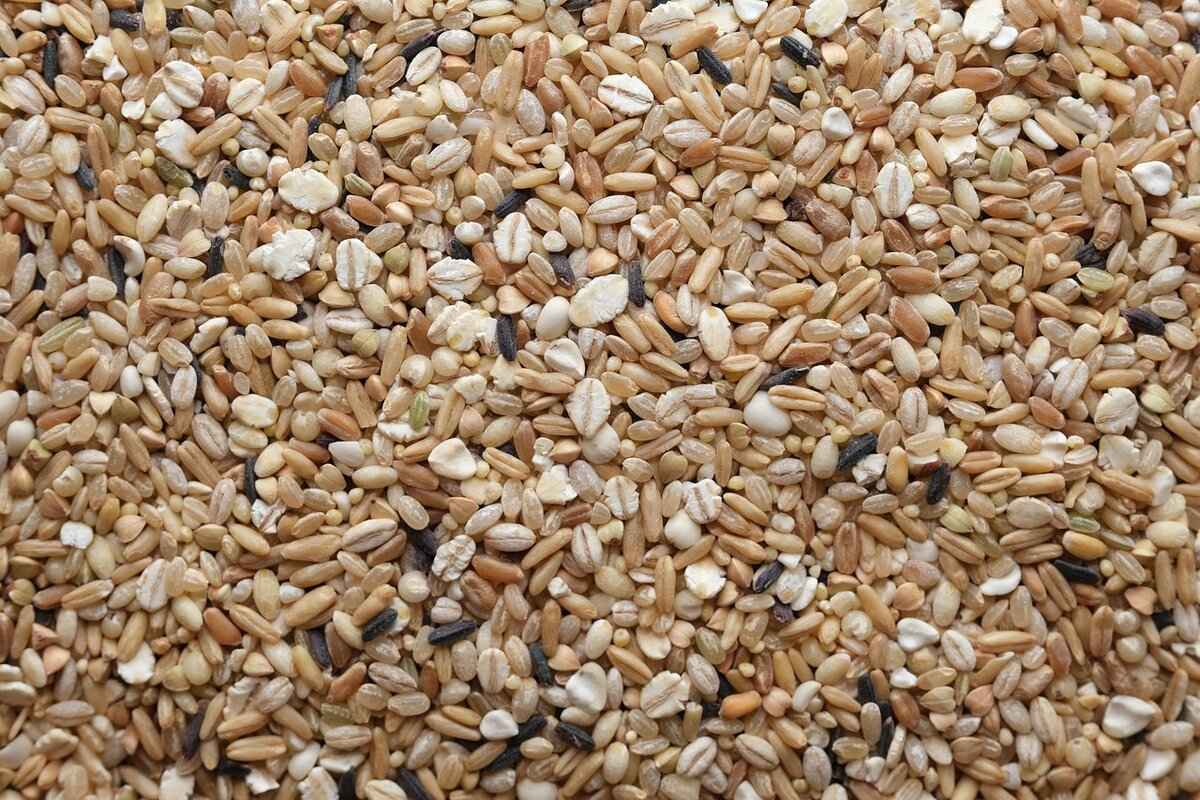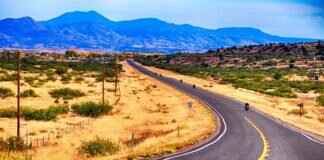This article explores the nutritional value of rice in Asian diets, examining its health benefits, potential drawbacks, and the cultural significance it holds across various Asian countries.
Rice is predominantly a source of carbohydrates, which serve as the body’s primary energy source. In addition to carbs, different varieties of rice offer a range of essential nutrients:
- Vitamins: Brown rice is rich in B vitamins, which play a vital role in energy metabolism.
- Minerals: Rice contains minerals such as magnesium, phosphorus, and potassium, which are crucial for various bodily functions.
- Dietary Fiber: Whole grain rice varieties, like brown rice, provide dietary fiber that aids in digestion and promotes satiety.
The glycemic index (GI) of rice can vary significantly based on its type and preparation method. White rice typically has a higher GI, which can lead to rapid spikes in blood sugar levels. In contrast, brown rice has a lower GI and is more beneficial for those managing diabetes. Understanding these differences is essential for making informed dietary choices.
Incorporating rice into a balanced diet can offer several health benefits:
- Energy Provision: The carbohydrates in rice provide a quick source of energy, making it an ideal food for athletes and active individuals.
- Digestive Health: The fiber in whole grain rice can help maintain digestive health, preventing constipation and promoting regularity.
- Gluten-Free: Rice is naturally gluten-free, making it a suitable option for individuals with gluten intolerance or celiac disease.
While rice is nutritious, excessive consumption may lead to potential drawbacks:
- Weight Gain: Overeating rice, especially white rice, can contribute to weight gain due to its high-calorie content.
- Arsenic Exposure: Certain rice types, particularly those grown in contaminated soil, may contain harmful levels of arsenic. It’s important to vary your grain intake and choose rice from reputable sources.
Rice is more than just a food item in Asian cultures; it holds significant cultural value. In many Asian countries, rice is a symbol of prosperity and is often featured in traditional ceremonies and celebrations. The way rice is prepared and served varies widely, reflecting local customs and culinary practices. For instance:
- In Japan, rice is often steamed and served as a side dish.
- In India, rice is commonly used in biryanis and pulaos, showcasing regional spices and cooking techniques.
For those looking to diversify their meals, there are several alternatives to rice:
- Quinoa: A protein-rich grain that is gluten-free and offers a nutty flavor.
- Millet: A versatile grain that is high in fiber and can be used in various dishes.
- Barley: Known for its chewy texture and health benefits, barley can be a nutritious substitute.
In conclusion, rice plays a crucial role in Asian diets, offering both nutritional benefits and cultural significance. Understanding its impact on health, along with the potential drawbacks, can help individuals make informed dietary choices.

What Nutrients Does Rice Provide?
Rice is a fundamental component of many Asian diets, serving not only as a primary source of energy but also as a vehicle for various essential nutrients. This section explores the nutritional profile of rice, highlighting the vitamins, minerals, and dietary fiber it provides.
Rice is predominantly known for its high carbohydrate content, which is crucial for energy production. However, its nutritional value extends beyond just carbohydrates. Different types of rice, such as white, brown, and jasmine, offer varying levels of nutrients. Below is a detailed breakdown of the essential nutrients found in rice:
| Nutrient | Amount per 100g | Benefits |
|---|---|---|
| Carbohydrates | 77g | Provides energy for daily activities. |
| Protein | 2.7g | Supports muscle repair and growth. |
| Dietary Fiber | 1.3g | Aids digestion and promotes satiety. |
| Iron | 0.2mg | Essential for oxygen transport in the blood. |
| Magnesium | 25mg | Supports muscle and nerve function. |
| Vitamin B6 | 0.1mg | Important for metabolism and brain health. |
| Folate | 9µg | Crucial for DNA synthesis and repair. |
Among the various types of rice, brown rice stands out for its higher fiber content and greater nutrient density compared to its white counterpart. The outer bran layer in brown rice retains essential nutrients, making it a more wholesome choice. In contrast, white rice, while still a good source of energy, is often stripped of many vitamins and minerals during processing.
Vitamins found in rice play a significant role in maintaining overall health. For instance, the B vitamins, including thiamine and niacin, are vital for energy metabolism. These vitamins help convert carbohydrates into energy, ensuring that the body functions optimally throughout the day.
Moreover, rice is a naturally gluten-free grain, making it an excellent alternative for individuals with celiac disease or gluten sensitivity. This quality allows rice to be included in a diverse range of diets, further emphasizing its importance in Asian cuisine.
Incorporating rice into meals not only provides essential nutrients but also enhances the overall flavor profile of dishes. Whether served as a side or as the main component of a meal, rice holds cultural significance and fosters social connections within communities.
In conclusion, rice is more than just a source of carbohydrates; it is a nutrient-dense food that contributes to overall health and well-being. Understanding its nutritional benefits can help individuals make informed dietary choices, ensuring that rice remains a staple in a balanced diet.

How Does Rice Impact Blood Sugar Levels?
Rice is a fundamental component of many Asian diets, providing essential energy and nutrition. However, understanding how rice impacts blood sugar levels is particularly important for individuals who are monitoring their glucose levels, such as those with diabetes. This section will explore the glycemic index (GI) of various rice types, their effects on blood sugar, and the broader implications for health.
The glycemic index is a ranking of carbohydrates in foods based on their immediate effect on blood glucose levels. Foods with a high GI are rapidly digested and absorbed, causing a swift increase in blood sugar. In contrast, low-GI foods release glucose more gradually, promoting better blood sugar control.
Not all rice is created equal when it comes to its glycemic index. For example:
- White Rice: Typically has a high GI, ranging from 70 to 90, which can lead to spikes in blood sugar.
- Brown Rice: Considered a healthier option, it has a lower GI (around 50 to 55) due to its higher fiber content, which helps slow digestion.
- Jasmine Rice: This fragrant rice has a medium to high GI (around 68), making it a less optimal choice for blood sugar control.
- Basmati Rice: Known for its lower GI (around 50), it is often recommended for those looking to manage their blood sugar levels.
For individuals managing diabetes or prediabetes, choosing low-GI foods like brown or basmati rice can aid in maintaining stable blood sugar levels. Furthermore, understanding the glycemic response can help in planning meals that provide sustained energy without causing rapid fluctuations in glucose levels.
The way rice is cooked can also impact its glycemic index. For instance, cooking rice al dente (firm to the bite) can result in a lower GI compared to overcooking it. Additionally, cooling cooked rice before consumption can increase resistant starch levels, further lowering the GI and improving blood sugar control.
Choosing the right type of rice and cooking method can have significant implications for overall health. Regular consumption of high-GI rice can lead to increased insulin resistance, weight gain, and a higher risk of developing type 2 diabetes. On the other hand, incorporating lower-GI rice varieties can contribute to better glycemic control, weight management, and overall metabolic health.
While the glycemic index is an important factor, it is not the only consideration. Portion sizes, overall dietary patterns, and the presence of other macronutrients (like protein and fat) can also influence blood sugar responses. Pairing rice with vegetables, lean proteins, and healthy fats can mitigate its impact on blood sugar levels.
In summary, understanding how rice impacts blood sugar levels is critical for those looking to maintain optimal health. By selecting the right varieties and cooking methods, individuals can enjoy rice as part of a balanced diet while managing their blood sugar effectively.

What Are the Health Benefits of Consuming Rice?
Rice is a fundamental component of many Asian diets, providing more than just sustenance. Its consumption is associated with a range of health benefits that contribute to overall well-being. In this section, we explore the various advantages of incorporating rice into a balanced diet, emphasizing its nutritional value and role in promoting health.
- Energy Provision: Rice is primarily composed of carbohydrates, making it an excellent source of energy. A single serving can provide the necessary fuel for daily activities, which is particularly beneficial for those with active lifestyles.
- Digestive Health: Certain varieties of rice, especially brown rice, are rich in dietary fiber. This fiber aids in digestion, helping to prevent constipation and promoting a healthy gut.
- Gluten-Free Option: For individuals with gluten intolerance or celiac disease, rice serves as a safe and versatile alternative to gluten-containing grains. It can be included in various dishes without the risk of adverse reactions.
- Rich in Essential Nutrients: Different types of rice, such as jasmine and basmati, contain various vitamins and minerals, including B vitamins, iron, and magnesium. These nutrients are vital for maintaining energy levels and supporting bodily functions.
- Low in Fat: Rice is naturally low in fat, making it a heart-healthy choice. It can be included in meals without significantly increasing overall fat intake, which is important for maintaining cardiovascular health.
- Versatile Culinary Uses: Rice can be prepared in numerous ways, making it a versatile ingredient in many cuisines. From stir-fries to soups, its adaptability allows for a wide range of dishes that can cater to different dietary needs and preferences.
Incorporating rice into your meals can also have psychological benefits. The act of sharing rice-based dishes during family meals or celebrations fosters a sense of community and cultural identity. This social aspect can enhance emotional well-being, making rice not just a food item but a symbol of togetherness.
However, it is essential to consume rice in moderation. While it offers numerous health benefits, excessive intake can lead to weight gain and other health issues. Balancing rice with other food groups, such as vegetables and proteins, can help mitigate these risks while maximizing its benefits.
In summary, rice is more than just a staple food; it is a nutritious, energy-providing component of many diets, particularly in Asia. Its health benefits, ranging from digestive health to emotional well-being, make it a valuable addition to a balanced diet. By understanding how to incorporate rice healthily and mindfully, individuals can enjoy its advantages while maintaining overall health.

Are There Any Drawbacks to Eating Rice?
Rice is a fundamental component of many Asian diets, celebrated for its versatility and nutritional value. However, it is essential to consider the potential drawbacks of consuming rice, especially when it becomes a predominant part of one’s diet. This section delves into the concerns associated with excessive rice consumption, including weight gain and the risk of arsenic exposure.
While rice is a source of energy and essential nutrients, overindulgence can lead to several health issues:
- Weight Gain: Rice is high in carbohydrates, which, when consumed in excess, can contribute to weight gain. This is particularly concerning for individuals who lead a sedentary lifestyle. The body converts excess carbohydrates into fat, leading to an increase in body weight.
- Increased Blood Sugar Levels: The glycemic index of rice varies depending on the type. White rice, for instance, has a high glycemic index, which can lead to spikes in blood sugar levels. This is particularly important for individuals managing diabetes or insulin resistance.
- Arsenic Exposure: Certain types of rice, especially those grown in contaminated water or soil, can accumulate arsenic, a toxic element linked to various health problems. Long-term exposure to arsenic can lead to serious health issues, including cancer and cardiovascular diseases.
Relying heavily on rice can lead to nutritional imbalances. While rice provides carbohydrates, it lacks certain essential nutrients:
- Low in Protein: Rice contains minimal protein compared to other grains and legumes. A diet overly reliant on rice may lead to protein deficiency, which is vital for muscle repair and overall health.
- Insufficient Fiber: White rice, in particular, is low in dietary fiber, which is crucial for digestive health. A fiber-deficient diet can result in constipation and other gastrointestinal issues.
To mitigate the potential drawbacks of rice consumption, consider incorporating a variety of grains and legumes into your diet:
- Brown Rice: Unlike white rice, brown rice retains its bran and germ, providing more fiber, vitamins, and minerals.
- Quinoa: This grain is rich in protein and contains all nine essential amino acids, making it an excellent alternative.
- Millet and Barley: Both are nutritious options that provide fiber and essential nutrients, helping to diversify your diet.
In conclusion, while rice can be a nutritious part of a balanced diet, it is crucial to be aware of its potential drawbacks, especially when consumed in excess. By diversifying your food choices and being mindful of portion sizes, you can enjoy the benefits of rice while minimizing health risks.

How Do Cultural Practices Influence Rice Consumption?
Rice is not just a staple food in many Asian countries; it is a profound symbol of culture and tradition that influences various aspects of daily life. In this section, we delve into how cultural practices shape rice consumption and its significance in social settings.
Across Asia, rice is regarded as a cultural cornerstone. In countries like China, India, and Japan, rice not only serves as a primary source of nutrition but also plays a vital role in rituals, festivals, and family gatherings. For instance, during the Chinese New Year, rice dishes symbolize prosperity and unity, while in India, rice is often used in religious ceremonies, highlighting its sacred status.
Meal structures in many Asian cultures are intricately linked to rice. In traditional family meals, rice often occupies the center of the table, accompanied by a variety of side dishes. This arrangement emphasizes the importance of communal dining and sharing, reflecting the values of togetherness and harmony. In Japan, for example, the phrase “go-han,” which means cooked rice, is commonly used to refer to food in general, indicating the central role rice plays in Japanese cuisine.
- Festivals and Celebrations: Rice is often featured in traditional dishes during festivals, such as mochi in Japan or pongal in South India, reinforcing its cultural significance.
- Social Gatherings: In many Asian cultures, sharing a meal that includes rice fosters social bonds and strengthens family ties.
- Rituals and Offerings: Rice is frequently used in religious offerings and rituals, symbolizing sustenance and gratitude.
Moreover, the way rice is prepared and consumed varies significantly across regions, influenced by local customs and traditions. For example, in Southeast Asia, sticky rice is a staple that is often eaten with hands, enhancing the sensory experience of eating and promoting a sense of community. In contrast, in East Asian countries, rice is typically served in bowls with chopsticks, reflecting the cultural nuances of dining etiquette.
Additionally, rice varieties and cooking methods are often passed down through generations, preserving culinary heritage. Families may have unique recipes that include specific types of rice, such as jasmine rice in Thailand or basmati rice in India, each contributing to the distinct flavors and textures of regional dishes.
In conclusion, rice is more than just a food item in Asian cultures; it embodies a rich tapestry of traditions, social interactions, and culinary practices. Its significance transcends mere sustenance, serving as a vital link between the past and present, and fostering a sense of identity among communities. Understanding these cultural practices not only enhances our appreciation of rice but also highlights its role in promoting social cohesion and cultural continuity.

What Are the Alternatives to Rice in Asian Diets?
In Asian cuisines, rice is often considered the cornerstone of many meals, but for those seeking variety, numerous alternatives to rice exist. These alternatives not only provide different flavors and textures but also come with unique nutritional benefits. This section explores other grains and starches commonly used in Asian diets, offering insights into their culinary uses and health profiles.
- Quinoa: Known for its high protein content, quinoa is a gluten-free grain that is rich in essential amino acids. It cooks quickly and can be used in salads, stir-fries, or as a side dish.
- Millet: A staple in many Asian countries, millet is a small, round grain that is packed with nutrients. It is high in magnesium and fiber, making it a great option for those looking to improve their digestive health.
- Barley: Often used in soups and stews, barley is a hearty grain that contains beta-glucans, which are known to help lower cholesterol levels. It adds a chewy texture and nutty flavor to dishes.
- Sorghum: This ancient grain is gaining popularity due to its health benefits and versatility. Sorghum is rich in antioxidants and can be used in both sweet and savory dishes.
- Cauliflower Rice: A low-carb alternative, cauliflower rice is made by grating cauliflower into rice-sized pieces. It is an excellent option for those looking to reduce their carbohydrate intake while still enjoying a rice-like texture.
Each of these alternatives to rice offers distinct nutritional benefits. For example, quinoa is not only a source of protein but also contains important vitamins like B and E. Millet, being high in fiber, aids in digestion and promotes a feeling of fullness, which can be beneficial for weight management.
Barley, rich in soluble fiber, has been linked to improved heart health, while sorghum is an excellent source of iron and can help prevent anemia. On the other hand, cauliflower rice is an excellent choice for those on a ketogenic or low-carb diet, providing essential nutrients with minimal calories.
Incorporating these alternatives into your meals can be both easy and delicious. For instance, quinoa can be used as a base for grain bowls topped with vegetables and proteins. Millet can be cooked as a porridge for breakfast or used in savory dishes as a rice substitute.
Barley can be added to soups for a hearty texture or used in salads for added chewiness. Sorghum can be popped like popcorn for a healthy snack or cooked and served alongside your favorite stir-fried vegetables. Cauliflower rice can easily replace traditional rice in any dish, from fried rice to burrito bowls, allowing you to enjoy your favorite meals with fewer carbs.
While these alternatives provide numerous benefits, it’s essential to consider individual dietary needs and preferences. Some grains, like quinoa and barley, may require longer cooking times than rice. Additionally, those with gluten sensitivities should ensure they choose gluten-free options like quinoa, millet, and sorghum.
Ultimately, exploring these rice alternatives can enhance your culinary experience while providing varied nutritional benefits. By diversifying your grain choices, you not only enrich your diet but also discover new flavors and textures that can elevate your meals.
Frequently Asked Questions
- Is rice a healthy part of my diet?
Absolutely! Rice is a great source of carbohydrates, providing energy for your daily activities. It can be part of a balanced diet, especially when paired with vegetables and proteins.
- What types of rice are the healthiest?
Brown rice and wild rice are often considered healthier options due to their higher fiber content and nutrient density. They can help keep your digestive system happy!
- Can rice affect my blood sugar levels?
Yes, it can! Rice has a glycemic index that varies by type. For example, white rice can spike blood sugar more than brown rice. If you’re monitoring your blood sugar, consider choosing lower-GI options.
- Are there any risks associated with eating rice?
While rice is nutritious, overconsumption can lead to weight gain. Additionally, some rice may contain arsenic, so it’s wise to rinse it before cooking and vary your grains.
- What are some alternatives to rice in Asian diets?
There are plenty! Quinoa, barley, and even cauliflower rice are great substitutes that can add variety and nutrition to your meals.














